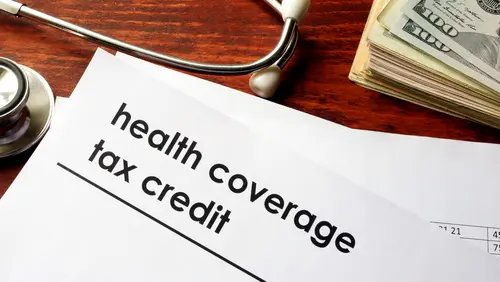
If you purchase health insurance through the Affordable Care Act marketplace, you need to be aware of some significant changes coming your way that will affect both your monthly premiums and your 2026 tax return.
Congress failed to extend enhanced premium tax credits before open enrollment began on November 1. While there’s still time for them to act before these subsidies expire on December 31, you’re already seeing the impact when you shop for 2026 coverage. Without congressional action, the premiums displayed on healthcare.gov reflect what you’ll pay if the enhanced credits disappear—and for most people, that means dramatically higher costs.
On average, subsidized marketplace enrollees are facing premium increases of 114% compared to what they paid in 2025. If you earn less than $62,600 as an individual (or $128,600 for a family of four), you’ll still qualify for some tax credits, but they’ll be significantly smaller than what you’ve been receiving. If your income is above these levels, you could lose subsidy eligibility entirely, leaving you to absorb both the loss of tax credits and rising insurance costs.
Here’s the critical change that affects my tax planning advice: starting with 2026 coverage, there are no longer any limits on how much excess premium tax credit you must repay when you file your taxes.
In the past, if you underestimated your income when enrolling, your repayment at tax time was capped. Those caps are gone. Now, if your actual 2026 income ends up higher than you estimated, you’ll owe back the full difference in tax credits you received—no matter how large that amount is.
This is particularly concerning for our self-employed clients, freelancers, and gig workers whose income fluctuates throughout the year. Imagine estimating your income at $58,000 but actually earning $70,000. Not only could you lose eligibility for credits entirely, but you might owe back the entire year’s worth of advance premium tax credits when we prepare your return—potentially $10,000 or more.
This is exactly why proactive tax planning matters more than ever. Here’s what I recommend we do together:
First, let’s schedule a consultation before you finalize your 2026 health insurance enrollment. We can review your expected 2026 income and make conservative estimates that protect you from massive repayment obligations next April.
Second, if you’re already enrolled for 2026, we should meet quarterly to review your actual income. If you’re earning more than expected, we can notify the marketplace to reduce your advance credits now rather than face a shocking tax bill later.
Third, we need to discuss whether switching to a bronze or catastrophic plan with lower premiums makes sense for your situation. These plans now qualify for health savings accounts, which offer valuable tax deductions and tax-free growth that could offset some of the pain from losing enhanced credits.
The worst thing you can do is ignore these changes and hope Congress acts. Even if enhanced credits are extended, the new repayment rules are law. Waiting until we prepare your 2026 tax return to discover you owe thousands in excess credit repayment is a costly mistake we can avoid.
Contact our office today to schedule your tax planning consultation. Let’s make sure your 2026 coverage choices don’t create a 2027 tax disaster.

Christine Gervais
Christine Gervais is a licensed CPA, using her skills to help businesses grow and achieve their fullest potential. Christine has a Master’s degree in accounting from Southern New Hampshire University in addition to holding her CPA license for over a decade. Notably, Christine is a nationally recognized speaker providing education to other CPAs on how to best serve clients as well as instruction on a wide variety of topics for business owners on how to maximize success. Christine prides herself on the value she can bring to clients with her extensive tax knowledge and provides strategic, forward-thinking financial strategies to help clients grow. When not behind her desk, you can find Christine spending quality time with her daughter and stepson or tending to the family’s excessively loved farm animals.